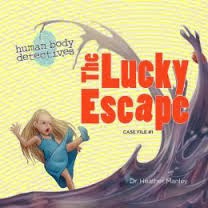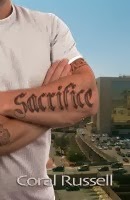For me, the worst part of being a writer is the rejection. I tend to be an introvert (like many writers!) so it can be hard for me to put my work and myself out there in the first place. When my efforts are met with a brief form letter or email, or, even worse, utter silence, it often makes me want to just go to bed and hide under the covers (not the most helpful of reactions).
I knew what I was signing up for when I decided to become a writer, of course; the image of an author papering their walls with rejection slips is practically a cliché, and everyone has heard the stories about famous books that were initially rejected by publisher after publisher. But like so many things, there’s a vast difference between being aware of something and actually experiencing it.
My first rejection technically came the summer after my freshman year of college, when I sent some (truly horrible) poems to literary magazines on a whim. All rejected. It didn’t really bug me much, since I didn’t have much invested in those poems – which was probably a factor in how truly, truly horrible they were! My first story rejection was a different matter, though. It was a weird little piece about a family trying to divest a man’s estate at his funeral, while he was alive and protesting from his casket. I did what many first time writers do: I sent it to theNew Yorker. It was, of course, summarily rejected. I was crushed. Clearly my work sucked. Clearly I wasn’t cut out to be a writer. Clearly I should just give up.
I wallowed for a day or so, but eventually got over it. I kept writing, and kept submitting, because my desire to be a published author was greater than my discouragement at being rejected. But it was a near thing, and that struggle replays itself every time I receive that dreaded form letter, even now. It’s gotten a little easier to take, but I’ve also developed a number of coping mechanisms. They keep me from spending more than, say, a couple hours in bed with the covers pulled over my head.
The first thing I do is remember that every writer gets rejected, even ones who are famous or have been at this for a long time. That’s because there are many reasons that a story might be rejected, and quality is only one of them! Let’s say the story has a talking rabbit. Maybe the editor really despises talking rabbits. Maybe the talking rabbit angle just isn’t suited for that particular publication. Or maybe they ran a talking rabbit story just last month!
Whatever the reason the talking bunny story was turned down, it had to do with the story, not the author. A rejection only tells the writer that the piece isn’t suitable. It doesn’t tell them that they are a bad writer or that they’ll never succeed as an author. And it definitely doesn’t say anything about the writer as a person.
Once these reminders have kept me from being totally crushed, I do a couple things to keep moving forward. First, I reward myself for having put myself out there! There’s a lovely clay pot on my desk that was an anniversary gift from my husband. Every time I get a rejection, I put money into the jar. The more I submit my work, the more rejections I get, and the more money goes into the jar. I’ve been rejected a lot, so I’ve amassed a lot of money that way. The computer I’m typing on right now was funded by that cash!
The second thing I do is immediately send the story out again. I usually have a pretty good idea of what magazines are out there that might be a good match for the piece, so I pick one and submit! It keeps me from second-guessing the story and getting caught up in endless tinkering. Every writer is familiar with chasing the horizon of perfection. At some point you’ve just got to say enough is enough. I had already made sure the piece was the best it could be before I sent it out to begin with: enough is still enough.
This is how I’ve managed to beat back the Rejection Blues! It’s not easy, at all, but it definitely can be done. Above all, what’s important for all writers is that we be kind to ourselves, and keep writing!

Tara Martin – exceptionally accomplished neurobiology major with a troubled past. Steven Trent – confident political science major with an irresistible attraction to Tara. Paul Stratton – history major who is able to hear spirits. Together, they make up the Society for Paranormal Researchers at their prestigious New England University. When they’re not in class or writing papers, the three friends are chasing their passion….ghosts.
When the group learns of a local retired couple trying to sell a house they claim is haunted, they decide to investigate. As the clues unfold, a familiar spirit interrupts their investigation and Tara finds her life in danger. Can her friends save her before it’s too late?
Buy Now @ Amazon
Genre – YA paranormal, NA paranormal
Rating – PG-13
More details about the author




















